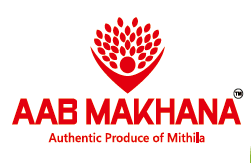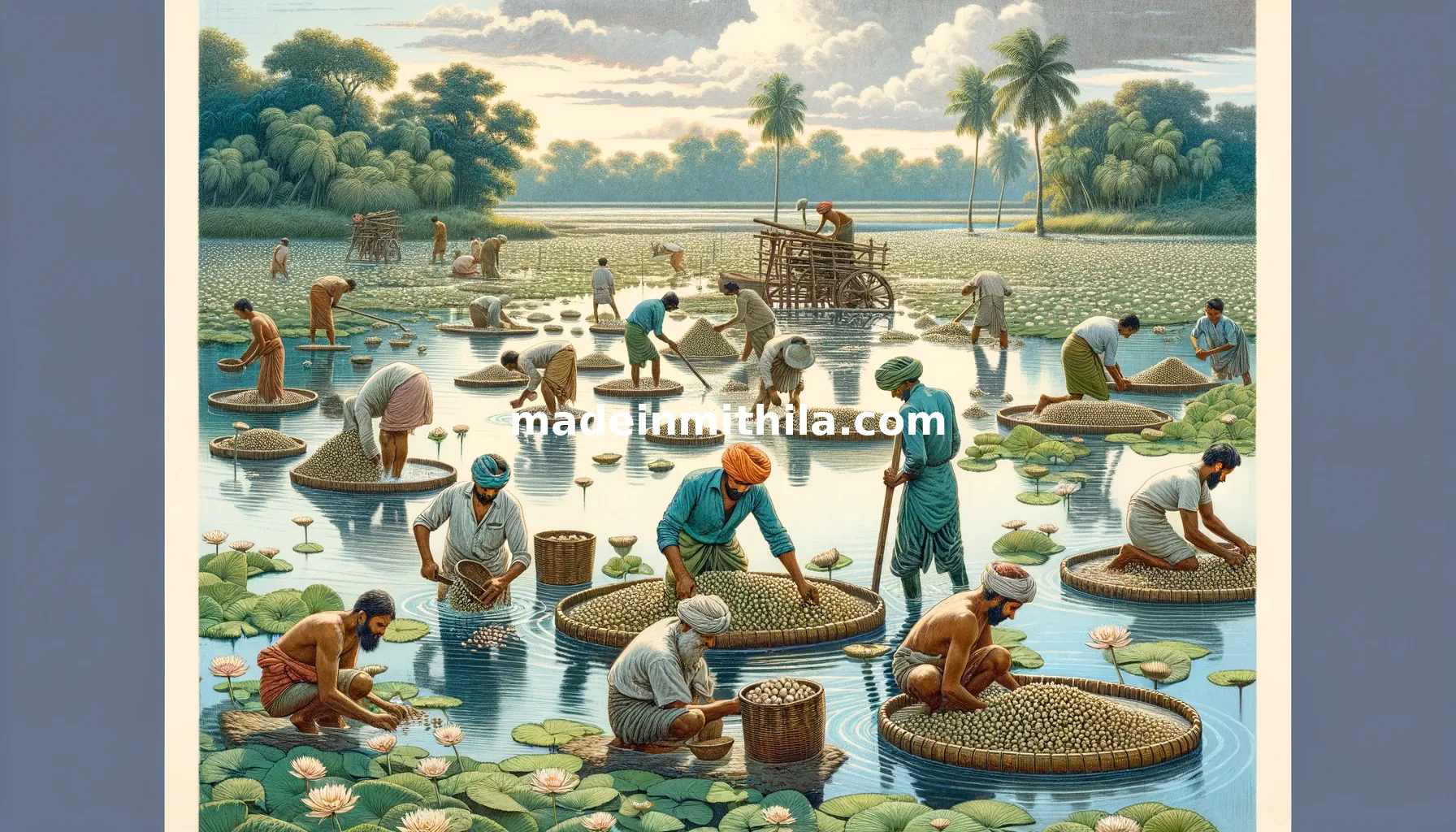Introduction
Makhana, or foxnut, is a superfood that has been an essential part of Indian cuisine for centuries. Its journey from the serene water bodies of Mithila to our kitchens begins with the crucial process of seed collection. This blog explores the intricate and labor-intensive process of collecting Makhana seeds, shedding light on the dedication and skill involved. By understanding this initial step, you’ll appreciate the authenticity and quality of Makhana from MadeInMithila.com even more.
The Importance of Seed Collection
Seed collection is the foundational step in the Makhana production process. The quality of the final product largely depends on how and when the seeds are collected. In the Mithila region, this process is carried out with traditional expertise passed down through generations.
The Process of Seed Collection
- Identifying Mature Seeds:
- The first step involves identifying mature seeds ready for collection. Experienced farmers can tell when the seeds are ready by observing the water lilies’ flowers and seed pods in the ponds and wetlands.
- Wading Through Water Bodies:
- Seed collection is typically done in shallow ponds or wetlands where the Euryale ferox plants grow. Farmers wade through the water, often up to their waists, to reach the seed pods. This is a labor-intensive process that requires patience and physical endurance.
- Harvesting by Hand:
- The seeds are harvested by hand, using traditional tools to collect them from the muddy pond beds. This ensures that the seeds are not damaged and maintains their quality.
- Initial Cleaning:
- Once collected, the seeds undergo an initial cleaning to remove mud and other impurities. This preliminary cleaning is essential to prevent contamination and ensure the seeds’ quality.
Challenges in Seed Collection
The seed collection process is fraught with challenges. Farmers often have to deal with adverse weather conditions, the presence of snakes and other water creatures, and the physical strain of wading through water for hours. Despite these challenges, their dedication ensures that only the best quality seeds are collected.
FAQs about Seed Collection in Mithila
Q1: Why is seed collection important for Makhana quality?
A: Seed collection is crucial because the quality of the seeds determines the quality of the final product. Properly collected and cleaned seeds result in better popping and a superior taste.
Q2: How do farmers know when the seeds are ready for collection?
A: Experienced farmers can identify mature seeds by observing the water lilies’ flowers and seed pods. The seeds are collected when the pods have matured and the seeds have sunk to the pond bed.
Q3: What tools are used in the seed collection process?
A: Traditional tools like small nets and baskets are used to collect seeds from the muddy pond beds. These tools help in gently gathering the seeds without damaging them.
Q4: What challenges do farmers face during seed collection?
A: Farmers face challenges such as adverse weather conditions, waterborne creatures, and the physical strain of wading through water for extended periods.
Q5: How does MadeInMithila.com ensure the quality of the seeds?
A: MadeInMithila.com works directly with local farmers who follow traditional methods of seed collection and cleaning. This ensures that only the best quality seeds are used for processing and packaging.
Conclusion
The process of seed collection in Mithila is a testament to the dedication and expertise of the local farmers. By understanding this intricate process, you can appreciate the effort that goes into bringing high-quality Makhana to your table. At MadeInMithila.com, we are committed to offering you the finest Makhana, sourced directly from the skilled hands of Mithila’s farmers.
For more information or to place an order, contact us at:
- Mobile: +91-8800445486
- WhatsApp: Click Here to Chat
- Email: aabmakhana@gmail.com
Experience the authentic taste and numerous health benefits of Mithila Makhana by visiting MadeInMithila.com today.

